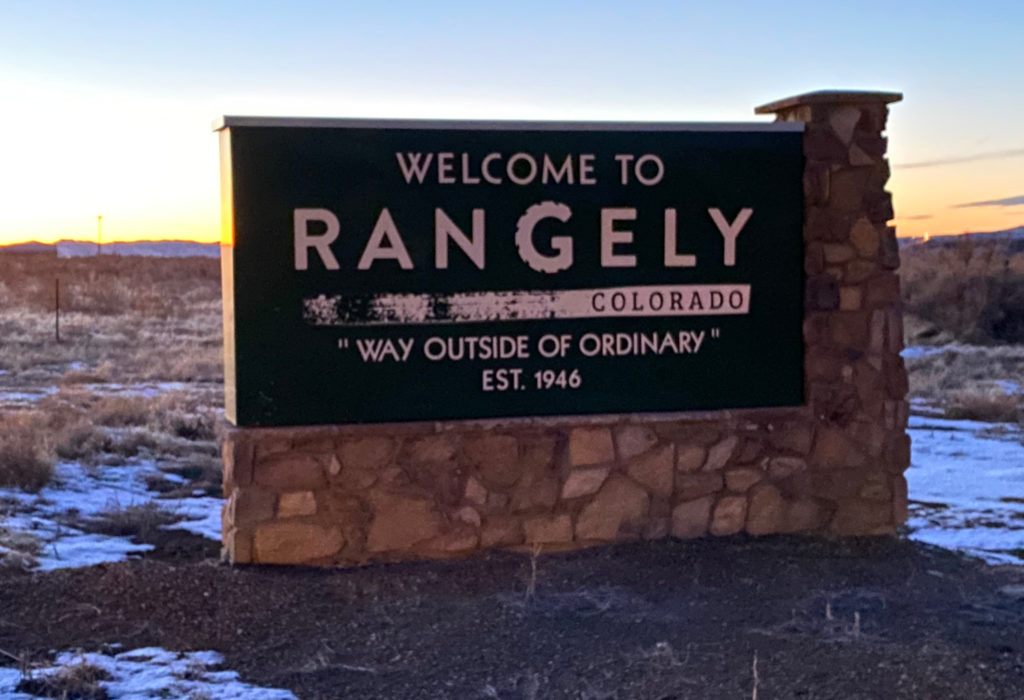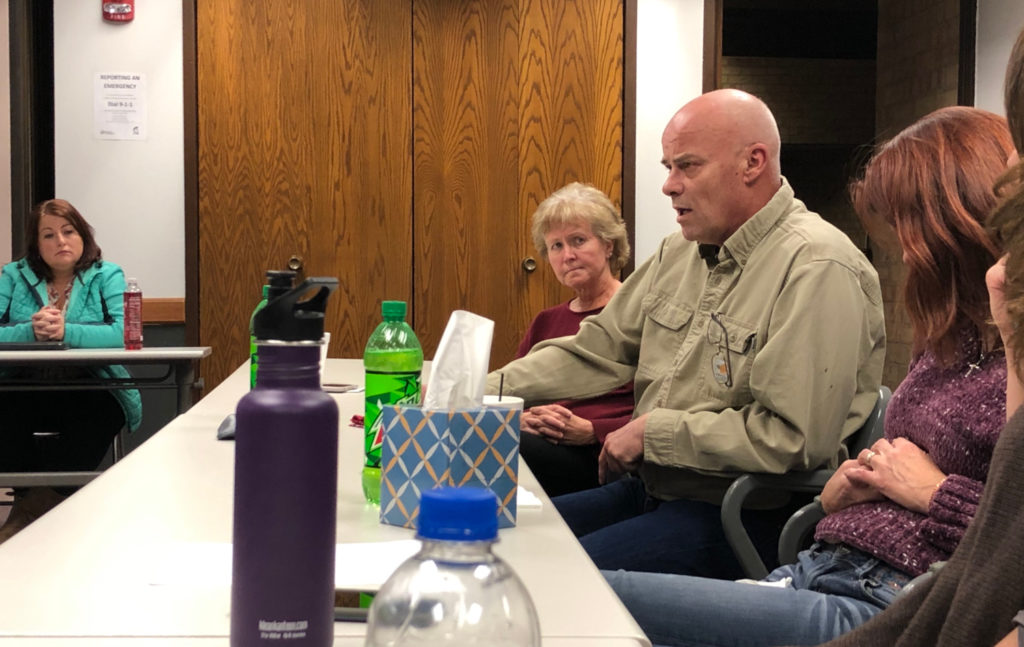By Jeffrey A. Roberts
CFOIC Executive Director
RANGELY ̶ Late in the evening, two hours into Monday’s meeting at the community college, Debra Pierce turned and faced the police lieutenant who shot and killed her husband one year ago.
“I don’t blame you,” she said to Roy Kinney, her voice trembling. “I hold nothing against anybody. I know you were doing your job and it was a very tough, tough situation … He gave you no other choice and I knew that when I got that call. But we are here today, and I hope – I hope – you can heal and move past this.”

It was the most emotional and powerful moment of a productive community conversation that wouldn’t have happened without “Through the Cracks: A stranger, a police shooting, and a small town’s silence,” last month’s collaborative project between The Colorado Independent and the Rio Blanco Herald Times.
Independent Editor Susan Greene and Herald Times Editor/Publisher Niki Turner told the tragic story of Daniel Pierce, a 58-year-old newcomer to this northwest Colorado town who was suffering from untreated paranoid schizophrenia. Pierce stole a pickup truck on Dec. 10, 2018, disobeyed police orders to pull over on the highway and was shot by Kinney, who thought Pierce had fired at Rangely’s police chief. Kinney knew that Pierce was having a mental health crisis.
The killing, Rangely’s first officer-involved homicide in nearly 40 years, was a story town officials didn’t want told. It wasn’t mentioned at the town council meeting the next day. The town manager and the mayor made no public statements about the shooting, and they ignored the Herald Times’ questions in the aftermath about the job status of Kinney and the chief.
Greene and Turner needed a letter from attorney Steve Zansberg, president of the Colorado Freedom of Information Coalition, to secure the public release of the internal affairs investigation report. But the conclusions were blacked out (they subsequently obtained an unredacted copy another way).
Mayor Andy Shaffer told the journalists their story would “rekindle this whole thing that has went on … and it’s not going to be nice for anybody.”
It turns out, however, a lot of Rangely residents wanted – and needed – to know the truth. And they wanted to talk about what happened, how they felt and what needs to be done to prevent similar tragedies in the future.
That was evident at Monday evening’s meeting, which was arranged by The Independent and the Herald Times. About 40 people, including law enforcement officials, health professionals and a state lawmaker, mostly discussed the community’s glaring need for more mental health resources. They also talked about government secrecy in this town of 2,300 and the impact of “Through the Cracks.”
“I think it was a real positive thing to bring the community together,” said Paula Davis, a former Rangley mayor and police department employee. “Now we all know the truth. We don’t gossip about this anymore.”
Shaffer, who attended the meeting, said he’d been advised by an attorney to not talk about the shooting, not even with Kinney, his friend of many years. The mayor said the article “was good and I think the way you guys covered it was good.” But he also acknowledged that town officials haven’t “moved forward” on ways they could be more transparent with the public.

“Isn’t that a big issue if you’re a public official and your legal counsel or whoever is telling you not to talk to the public?” said Pat Turner, a trustee in the nearby town of Meeker and Niki Turner’s husband. “.. As public servants aren’t you supposed to communicate with the public? How are we going to figure out how to have open information if people are telling us not to talk?”
Kinney, for one, seemed relieved that some people are talking now and that he was given an outlet for “my side of the story.” No longer with the police department, he met privately with Debra Pierce right before the community meeting. The article by Greene and Turner “has been very important to me – just to get some release,” he said.
“Being silenced during the investigation is an absolute must. I talked to my pastor. I talked to my wife and my family,” Kinney said. “Being silenced past that is tough because I needed to talk … to relieve that mental stress. I don’t know how else to describe it. But you have to get it off your chest. You have to tell people the story until you’re sick of telling that story.”
Rangely sign photo by Alan Gottlieb.
Follow the Colorado Freedom of Information Coalition on Twitter @CoFOIC. Like CFOIC’s Facebook page. Do you appreciate the information and resources provided by CFOIC? Please consider making a tax-deductible donation.




